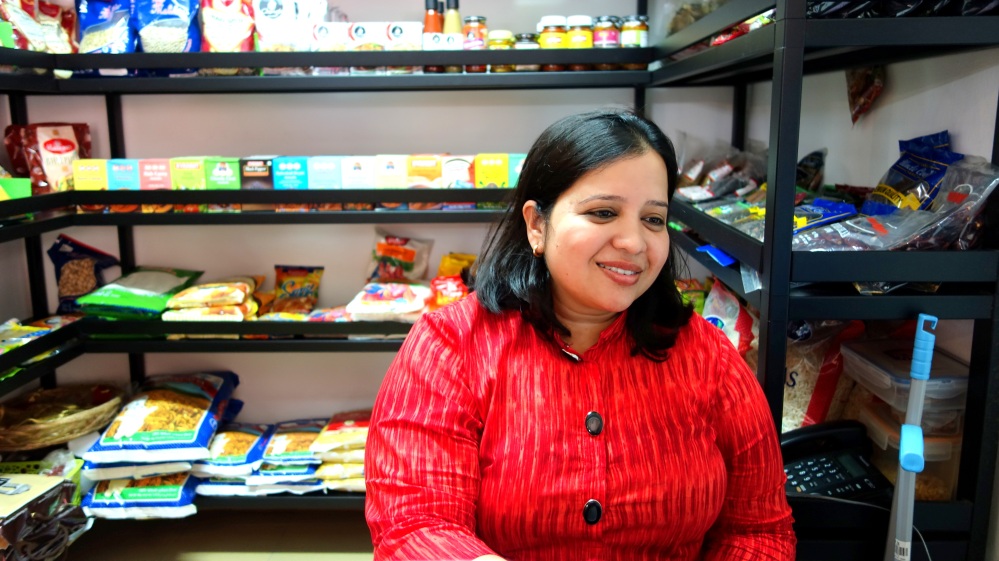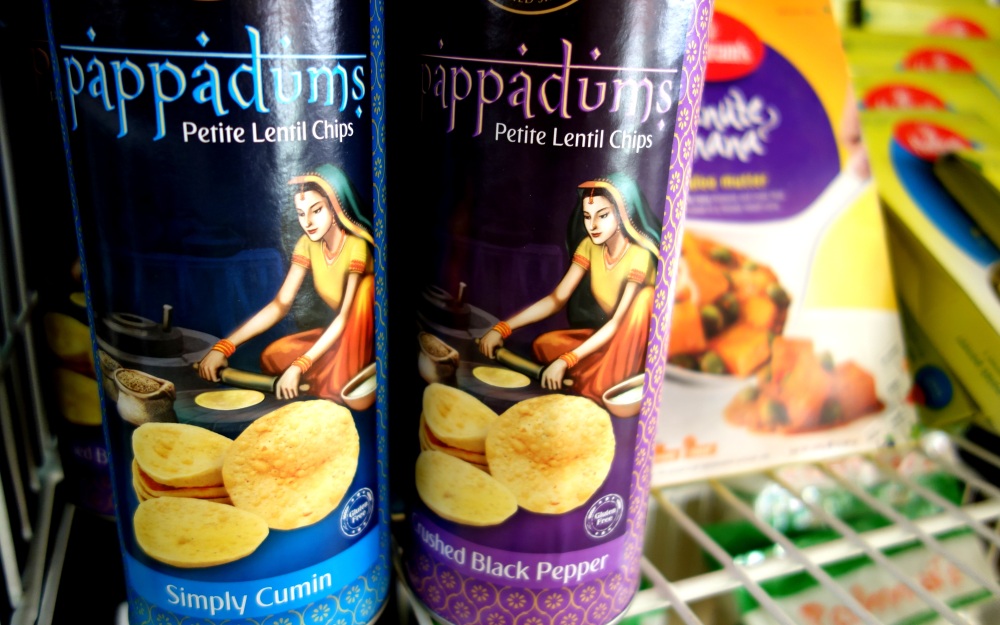
Poonam runs a provision shop selling Indian ingredients in a market cluster where you can find hawkers selling fruits, poultry, vegetables, dried beans and other goods for the kitchen. Her shop was open for less than a year at the time of interview, and this is her first business.
Poonam does not need to work to support her family; her husband is the breadwinner. The hours are long, the market is humid, and when you rent a hawker shop from the Singapore government, you are obliged to be on-site for at least 4 hours a day. Besides attending to customers, she manages every aspect of the business operation (such as dealing with suppliers and overlooking her inventory).
We find out what inspired Poonam to start this business, and tips she has learned from steering it this far.
Create a business to pursue your interest on a bigger scale
“I was always a housewife before turning into an entrepreneur. Indian cuisine is my passion, and the work keeps me active; it keeps me busy. Instead of sitting at home, I might as well provide a service to people!”
Give people a reason to buy your products (focus on why, not what)
This is no ordinary shop. Her customers not only walk away with ingredients, but with precious tips on how to cook delicious Indian food. “I’ll ask them: what Indian food do you like? They say: tikka, dosais. I say, that’s very easy to make! And I give them my own handwritten recipes.”

Customers do not only want your products – they want your attention
In a city where provision shops operate in the shadow of supermarkets, individual shopkeepers offer on oasis of rapport and personal attention.
Poonam has over 200 customers listed in her phone: they text her questions about food, and she sends videos of herself cooking at home to demonstrate the process.
“I am so amazed at the fact that people who love Indian food can now make the best Indian food. My Chinese customers can make the best of dals and cholay chaat. So many people have learned how to make yogurt from me! They send me photographs— they cannot believe they can make it! It’s so much cheaper and healthier.”

You can find out what “sells” by listening to your customers
Poonam listens to her customers. “One lady wanted a particular brand of oats, so I got it from the distributor. Now, because of her, other customers have discovered it is a healthy option! I tell them how I make my oats at home: there is a spicy version, and a sweeter version.”
Differentiate yourself from the mainstream
However, being small means being selective. “We don’t sell anything that NTUC keeps such as sugar and oils. Customers want it, but there’s no point—we have limited space available, so we might as well provide you things that they don’t provide.”

Shopkeepers are social connectors in their neighbourhood
Shopkeepers function as vibrant nodes in the city, interacting with people from all walks of life. Poonam reflects:
“However many malls come up in the city, this is the neighbourhood market: this is what keeps the base of the community strong. Even customers who don’t buy too much from me will stay to chat.
There is an old uncle who lives nearby and he’ll regularly come and ask me: Do you want tea? You makan [eat] already? He’s just looking for company, and I love talking with people.”
Say hey to Poonam @ #01-32 Holland Village Market
Shopkeeper Stories is a photo-documentary of small business owners and their trades around the world, sharing insights, stories and views. You can see all the posts on Instagram and Facebook @ShopkeeperStories